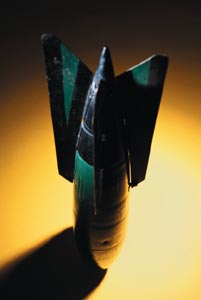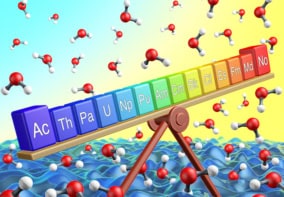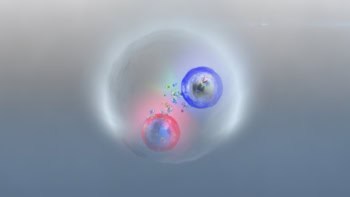It is 60 years ago this month that the worlds of physics and politics collided in a way that will never be forgotten. On 6 August 1945 a nuclear bomb exploded with a force equal to 13,000 tonnes of TNT above the Japanese city of Hiroshima. Three days later, on 9 August, a second, more powerful bomb devastated Nagasaki. Since then, governments around the world have employed large numbers of scientists and engineers to design, build and test ever more powerful nuclear weapons. And since 1945 large numbers of people - including many of the physicists who worked on the bomb at Los Alamos - have also campaigned against nuclear weapons.

This issue of Physics World explores some of the debates surrounding nuclear weapons – debates that are taking place in a world that is very different to the one that existed in 1939, when Einstein signed his famous letter to President Roosevelt (see p14; print version only). We should be grateful that an atomic bomb has not been used in anger since Nagasaki, but it is also profoundly disappointing that so little progress has been made in ridding the world of nuclear weapons.
The original nuclear superpowers – the former Soviet Union and the US – stopped nuclear tests in the early 1990s and are reducing the numbers of weapons in their stockpiles. However, they still have thousands of warheads and seem intent on designing new weapons as well. More alarmingly, the number of countries that possess nuclear weapons is also increasing, and the original five – China, France, Russia, the UK and the US – have now been joined by India, Israel, Pakistan, North Korea and, possibly, Iran (see “Weapons around the world”).
In “Complex future for US weapons” Michael Levi summarizes the situation in the US, where the Bush administration has, surprisingly, encountered opposition to it plans to develop a Robust Nuclear Earth Penetrator (aka the “bunker buster”). However, there has been widespread support in the US for a programme to design weapons that are optimized for longevity as opposed to, say, weight or explosive power. The US, it is obvious, has no intention of giving up its nuclear weapons.
The same is true in the UK, where the Labour government has said that it is “committed to retaining the independent nuclear deterrent” and that it will “continue to work, both bilaterally and through the UN, to urge states not yet party to non-proliferation treaties, notably the Nuclear Non-Proliferation Treaty, to join”. As Malcolm Chalmers explains in “Long live Trident?” (see p20; print version only), the Labour government will have to tackle the issue of how to replace the Vanguard submarines and Trident missiles that carry the UK’s nuclear warheads during the current parliamentary term (i.e. before 2010 at the latest).
Elsewhere in the issue we describe how France and the US are building giant laser facilities to ensure that their nuclear weapons explode when they are supposed to, and do not explode when they are not meant to (see p8; print version only), and explore the ethical responses to Hiroshima and Nagasaki by some of those who built the bombs that were dropped on Japan (see p15; print version only). We also look at what originally motivated the Manhattan scientists – a fear that Hitler could be building an atomic bomb (see “New twists on Germany’s bomb”).
In a world where millions still live in poverty and die from diseases that can easily be prevented, and where climate change has the potential to cause untold damage across the globe, it is obscene to waste resources and scientific brainpower on the development of new nuclear weapons, or on new ways to maintain existing nuclear stockpiles. The spectre of nuclear weapons has also been a massive obstacle in efforts to develop nuclear power – both fission and inertial-fusion energy. Nor are nuclear weapons any defence against attacks like those of 9/11 or Bali, Madrid and London. Nuclear weapons are the dinosaurs of the 21st century. The UK has a chance to take a lead when the Trident decision is made. Renouncing its nuclear deterrent would be a massive step forward.



